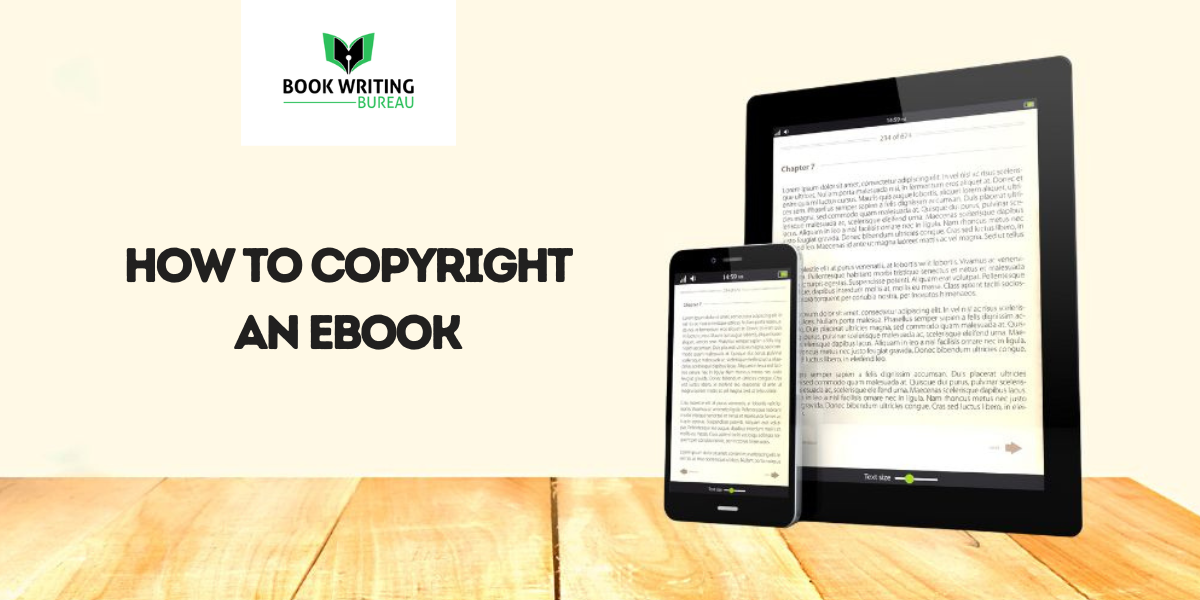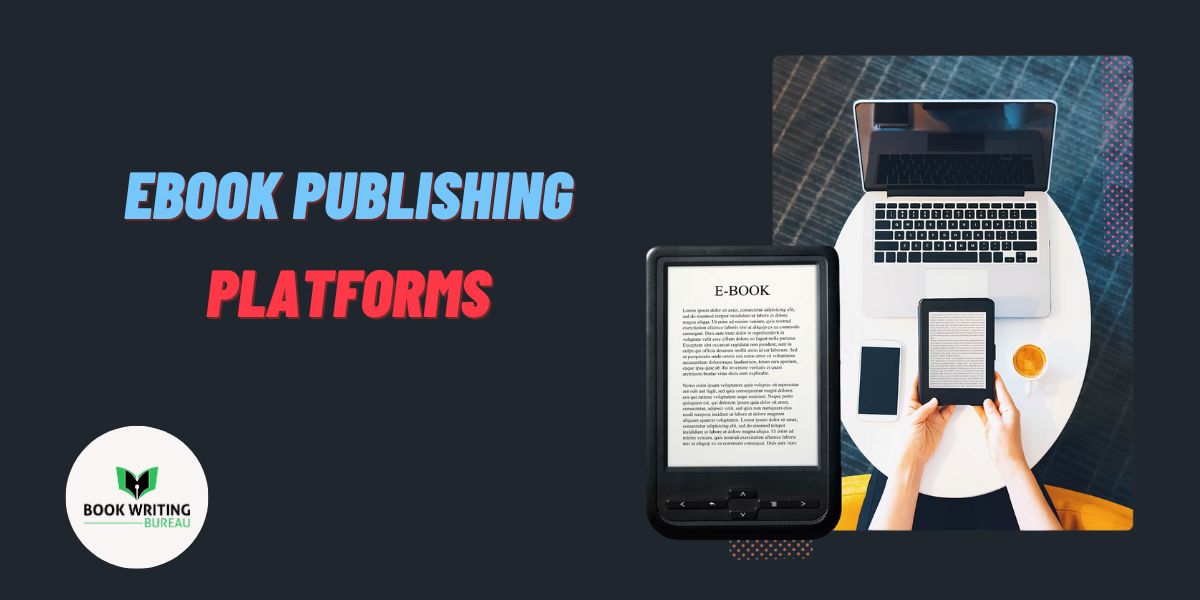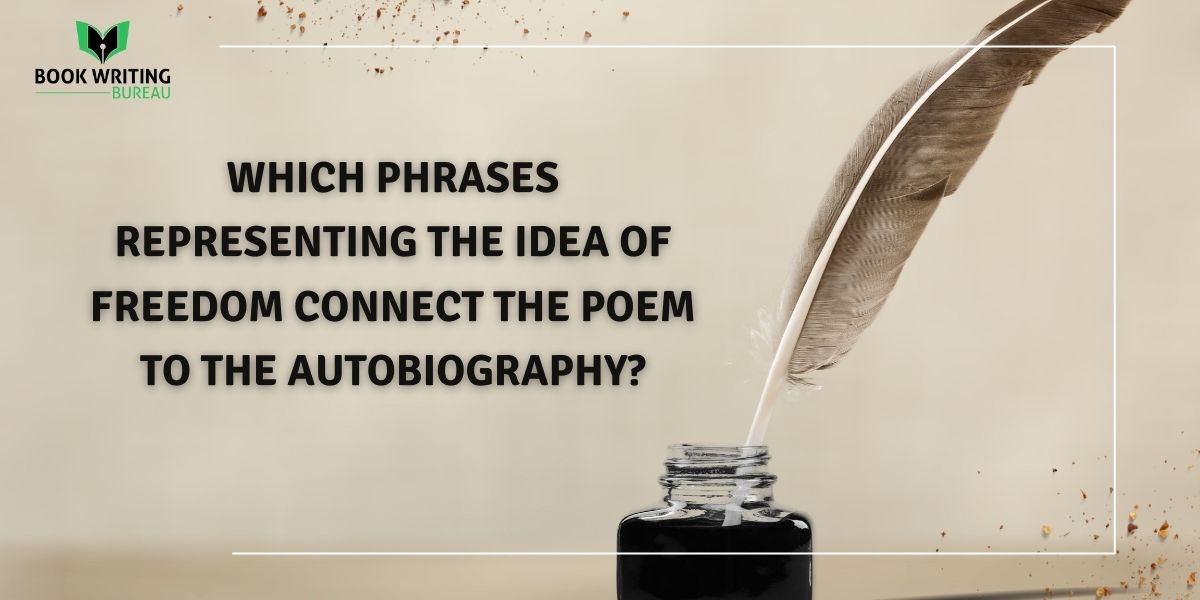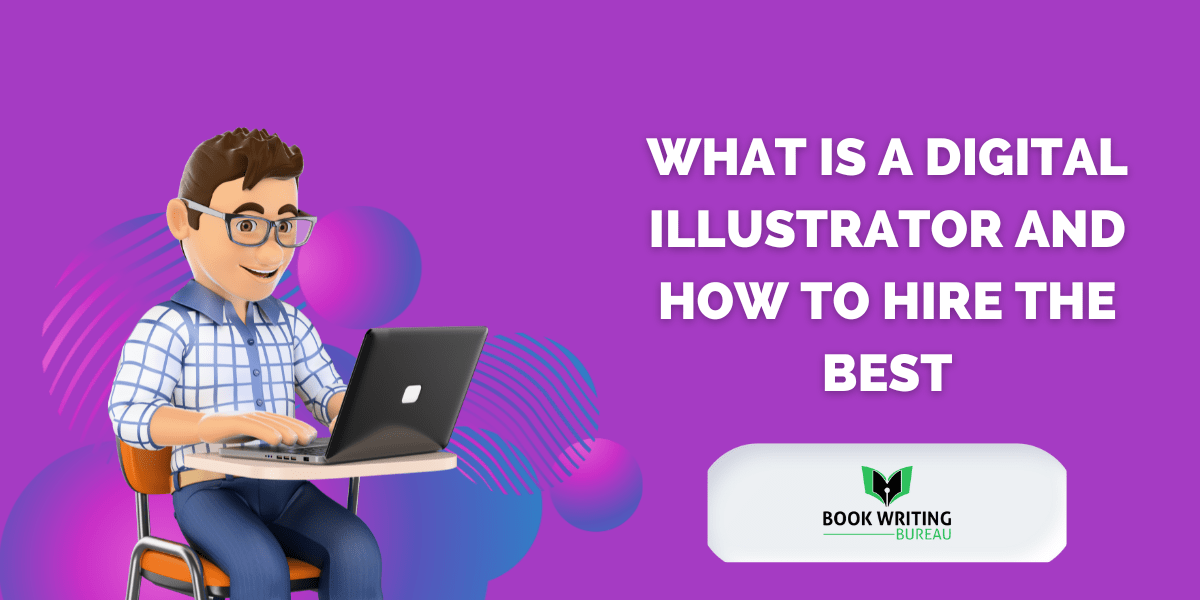
EBook
Writing a book is not easy. Getting your work ready for publication takes a lot of blood, sweat, and tears. Copyrighting your book is important because you don’t want people to just take your work or claim it as their own. But the question arises how to copyright an eBook? Registering an eBook for copyright may vary depending on your country.
When stolen or unlawfully shared, written works cause significant financial harm to their creators (including authors, publishers, and other businesses). Because of this, you must safeguard your creations.
It keeps people from stealing your work and protects your rights if someone wants to share it without your permission.
What Does Copyright Mean?
Copyright is a legal security that gives writers and artists the right to do what they want with their works. It gives you power over how your work is distributed, copied, and changed. Copyright keeps people from using your ideas without permission and ensures you get credit and maybe even money for your creative work.
Ebooks are considered creative works, so they have the right to be protected by copyright laws. This means you can get a copyright for any original writing in your novel, such as text, pictures, and drawings. But it’s important to remember that copyright does not protect your ebook’s ideas, facts, and concepts.
What Is an eBook Copyright Page?
A copyright page is part of an electronic book (eBook) that tells you about the book’s law and copyright information. It’s usually at the start of the eBook, usually on one of the first pages. The copyright page is an official notice of the author’s rights and sets out who owns the eBook and who has permission to use it.
A copyright page is an effective safeguard for your book. This is true for both ebooks and traditional books.
When publishing an eBook, knowing How to Copy an Ebook is important. It includes a copyright page at the very beginning to establish authorship and preserve the author’s rights. It serves as evidence of the author’s claim to the exclusive ownership of the eBook’s contents in court and as proof of ownership in other legal proceedings.
Key Components of an eBook Copyright Page:
To create an effective and comprehensive eBook copyright page, it is essential to include certain key components. These components establish the author’s rights and provide clarity and transparency to the eBook readers and stakeholders.
Let’s explore the essential elements that should be incorporated into an eBook copyright page:
1- Copyright Notice
The most important part of the copyright page is the copyright notice. It usually has the copyright sign (), the year the book came out, and the name of the person who owns the copyright. This warning makes it clear that copyright laws cover the eBook and that the author can only change the content.
2- All Rights Reserved Statement
The “All Rights Reserved” line clarifies that the author owns the eBook and has the copyright and ebook rights. It tells people not to use, copy, distribute, or change the content without first getting permission from the copyright owner.
3- Disclaimer
It is important to include a statement to clarify that the eBook’s information is for general use only and is not professional advice. This statement shields the author from possible legal trouble and lets readers know what the content can’t do.
4- ISBN (International Standard Book Number)
Each book edition and format has its own ISBN, which is a unique identification. By including the ISBN on the copyright page, libraries, merchants, and other parties engaged in the distribution process may properly identify, classify, and track the eBook.
5- Publisher Information
6. Permissions
If the eBook has copywritten or licensed content from another source, it is important to give credit to those permitted for its use. This part ensures that copyright laws are followed, shields against theft charges, and shows that the author cares about intellectual property rights.
7- Legal Notices
Additional legal notices may be necessary, depending on the subject matter of the professional book writing services. For instance, a privacy statement or confidentiality agreement may be required if the eBook contains personally identifiable information.
To guarantee compliance with applicable laws and regulations, engaging with legal specialists to understand the precise legal requirements and to include suitable legal notifications is essential.
How to Copyright an eBook?
Copyrighting eBooks is a way to protect your work legally so that others can’t use, copy, or share it without your permission. Different countries have different copyright rules, but here are some general things to think about the best eBook writers:
1- Originality and Fixation
To protect your ebook’s copyright, you first need to ensure it is unique and has a set form. Originality means that you made the material and didn’t copy it from someone else. Fixation means giving your thoughts a stable or lasting form, like keeping your ebook work as a digital file.
2- Automatic Copyright
Once you format an ebook and fixed in a physical form, it is protected by copyright in many countries, including the United States. Without properly registering your work, you still retain copyright protection. Registering your eBook, however, opens up new opportunities and improves your legal standing in the event of an infringement.
3- Copyright Registration
Registration of your book’s copyright is optional, although it is strongly suggested for security purposes. There are several benefits to registering your property with the right office. It shows that you own the property and makes it easier to prove your rights if violated. It also gives you the right to court and gets statutory damages if someone steals your work.
To register your eBook for copyright, follow these steps:
- Visit the main page of the copyright office in your country.
- Fill out the filing form for copyrights.
- Pay the fee, which may be different based on where you live.
- Send the copyright office a copy of your eBook or work and any other materials they request.
- Wait for your copyright registration to be confirmed and sent to you.
4- Copyright Notice
Putting a copyright note in your ebook is another important way to protect your work. A copyright note is not needed by law, but it lets readers and possible thieves know your work is protected by copyright. Usually, the note has the copyright symbol (), the year it was published, and your name or the name of the person who owns the copyright.
5- Digital Rights Management (DRM)
Copyright an eBook even further is possible with the help of digital rights management (DRM) software. Digital rights management (DRM) technologies allow you to limit who may read your eBook, prevent copies from being made, and monitor who is using it. There are several eBook-protection applications and platforms available to implement DRM.
6- Monitoring and Enforcement
After putting a copyright on your work, it’s important to keep an eye on it and use your rights. Here are a few things you can do:
- Search online platforms and sites often for copies or infringements of your work that are not allowed.
- Use tools that check for copying to find possible cases of content theft.
- Send stop-and-desist letters or DMCA takedown warnings to people or websites posting copies of your book without your permission.
- Talk to an intellectual property lawyer to determine your legal choices and, if necessary, take legal action.
Important Laws About Copyright for eBooks
You own the rights to the material of your self-published eBook because you made it. Unfortunately, not everyone follows the rules that this natural layer of safety sets up.
In other words, someone could steal your work and pass it off as their own. These thieves are especially likely to steal digital versions of books because it is much easier to steal and copy digital content than paper content.
The following copyright laws for eBooks were made to stop people from stealing eBooks:
Copyright Law for eBooks:
1- Basic protection for copyright: By law, only the author, who owns the copyright, has the right to copy or spread the eBook unless they have been given written permission to do so.
2- Digital Rights Management (DRM): It increases security by stopping illegal things like copying, sharing, or selling eBooks on Amazon. It also helps enforce the license that comes with an eBook when sold. Different DRM methods help stop hacking, such as:
- Adobe’s security code
- Watermarking
- End dates for downlinks
3-`Takedown notice” from Digital Millennium Copyright Act: When it’s found that a protected eBook’s content has been illegally shared online, the owner of the copyright can send a DMCA takedown notice to the website service provider, asking that the content be taken down.
Advantages of Copyright an eBook
In the digital age we live in now, eBooks are becoming increasingly popular as a quick and easy way to share information and stories. As an author or maker of material, it’s important to protect your intellectual property and ensure your hard work gets the credit it needs.
Copyright for eBooks is a good way to ensure your work stays safe. Here are ten reasons why copyrighting an eBook is a good idea and how it can help new and established writers.
1- Legal Protection
By giving your file copyrights, you prove legally that it is yours. This safety gives you sole rights, so no one else can copy, share, or profit from your work without your permission. It is a strong way to stop people from copying other people’s work or stealing ideas.
2- Asserting Ownership
Copyrighting an eBook lets you show your own clearly and legally. It shows that you wrote it, which makes it easier to prove your rights in court if there is a legal conflict. This feeling of control gives you confidence and peace of mind because you know your creative work is safe.
3- Financial Rewards
When an eBook is copyrighted, it may generate revenue in several ways. If you make money writing an eBook and hold all its copyrights, you may sell distribution licenses to other people or businesses in exchange for payment. This licensing may help you earn more money and reach a wider audience.
4- Recognition and Credibility
Having a copyright mark on your work shows you are skilled and trustworthy. It shows that you’ve done what you must to protect your work and lets people know your material is original and reliable. Copyright laws for eBooks can make you a better author and help you reach more people.
5- Marketing Advantage
Having a book with copyrights gives you an edge in selling. You can show how unique and valuable your work is by saying that it is legally protected. This difference can catch the eye of potential readers and make it more likely that your eBook will stand out in the sea of online material.
6- Control Over Distribution
Copyrighting lets you keep control over how your work is distributed. You can choose how to print an ebook and where it is shared, ensuring your target group gets it through official means. This tool lets you plan your marketing efforts well and increase the number of people who see your work.
7- Potential for Adaptation
The ability to copyright eBooks is a strong basis for any future modifications. The unique right to approve and profit from adaptations of your literary work, such as audiobooks, graphic novels, and screenplays, is protected by copyrighting. This opportunity for variety may open up fresh income channels and give wings to your imagination.
8- International Protection
Copyright laws are accepted and known worldwide, so you can protect your work beyond national lines. International laws and copyright agreements ensure that your work is protected in different countries. This global reach gives people peace of mind and opens the door to possible foreign partnerships.
9- Enhanced Professional Opportunities
As the property owner, you can use the success of your work to get new job possibilities. It can be a valuable badge that shows you know your skill well and are dedicated to it. Publishers, managers, and other people in the business are more likely to notice your work and think about partnering with you or making a book deal with you.
10- Longevity of Protection
The duration of the copyright of an eBook usually extends much after the author’s death. This durability guarantees that your eBook will be safe and will continue to provide money for your heirs long after you’re gone. It ensures that your literary creations will be remembered for generations to come.
FAQs
Do I Need to Copyright My Book?
Copyright protection is automatically granted to your book upon creation; registering your copyright can offer additional legal benefits and protections. It establishes a public record of ownership, provides evidence of authorship, enables statutory damages and legal remedies in case of infringement, facilitates international protection, enhances licensing and commercial opportunities, and offers peace of mind.
Knowing that you have taken proactive steps to protect your creative work offers peace of mind. Copyright eBooks deter potential infringers and allow you to focus on creating and promoting your book without constant concerns about unauthorized use.
While copyright registration is not mandatory, it is recommended to consult with a legal professional to determine the best course of action based on your specific circumstances and goals for your book.
What is the free methods to copyright my eBook?
You automatically hold the copyright to your eBook upon creation. To gain additional legal protections, you can register your copyright for a fee starting at $45 with the United States Copyright Office.
Can I copy an eBook without copyright?
No, copying an eBook without copyright is not permissible. Copyright protection grants exclusive rights to the author or copyright holder, including the right to reproduce the work. Copying an eBook without permission or proper licensing infringes upon the author’s copyright and violates intellectual property law.
How much does it cost to copyright an eBook?
The cost to copyright an eBook is $35 for registration. Upload your eBook file or zip file. If planning to publish a print edition, you must also send a print version to the copyright office.
Do I need to copyright my book before publishing it?
No, obtaining a formal copyright registration is unnecessary before online book publishing. Copyright protection is automatically granted to your work as soon as it is created and fixed in a tangible form. This means that your book is protected by copyright law from the moment you write it down or save it in a digital format.
Conclusion:
Protecting your eBooks with copyrights is important in preventing others from profiting off your hard work. First, know that you are automatically afforded copyright protection when you publish your eBooks.
Once your ideas have been committed to paper (or screen), you own the rights to your work. However, registering your copyright will provide you with more protection in the event of an infringement and other legal advantages.



